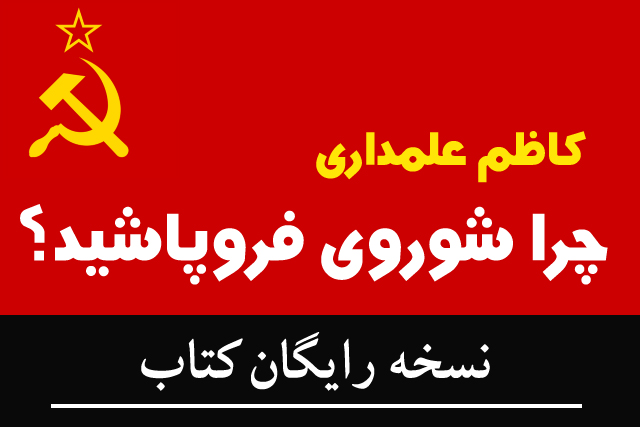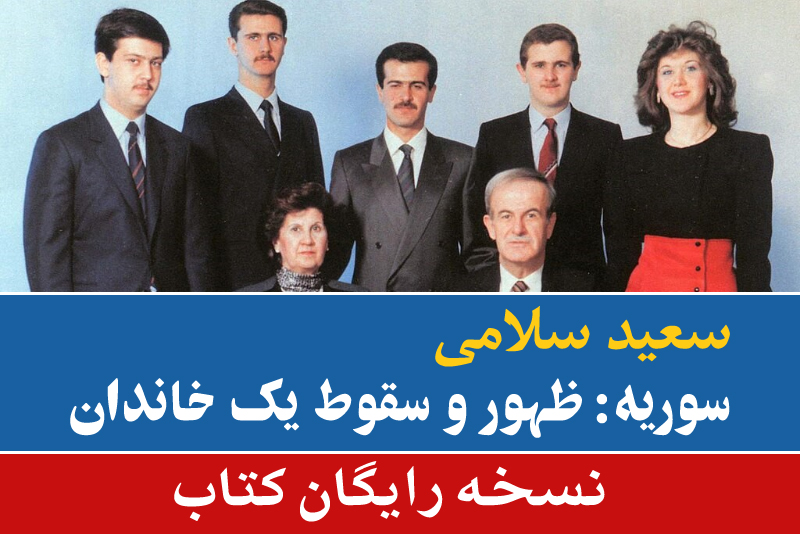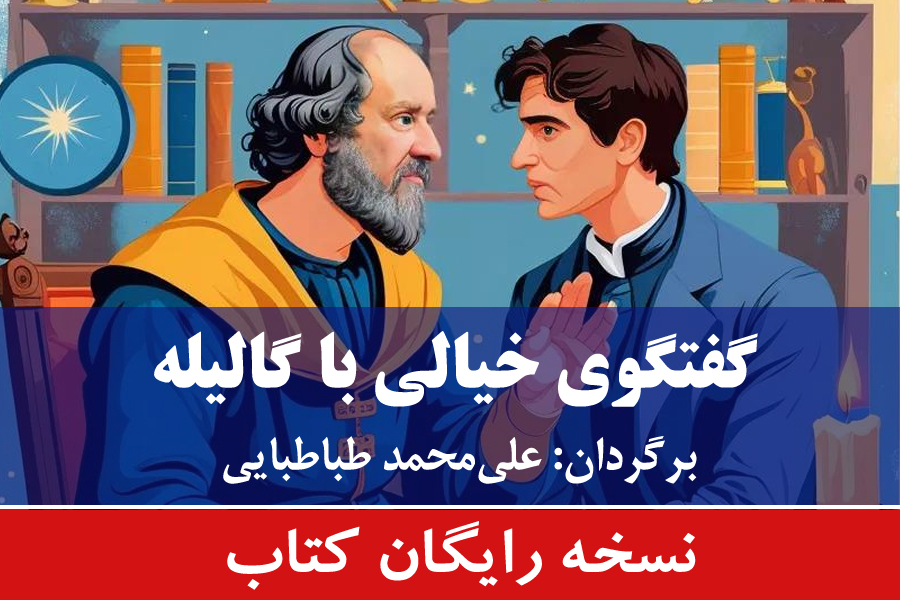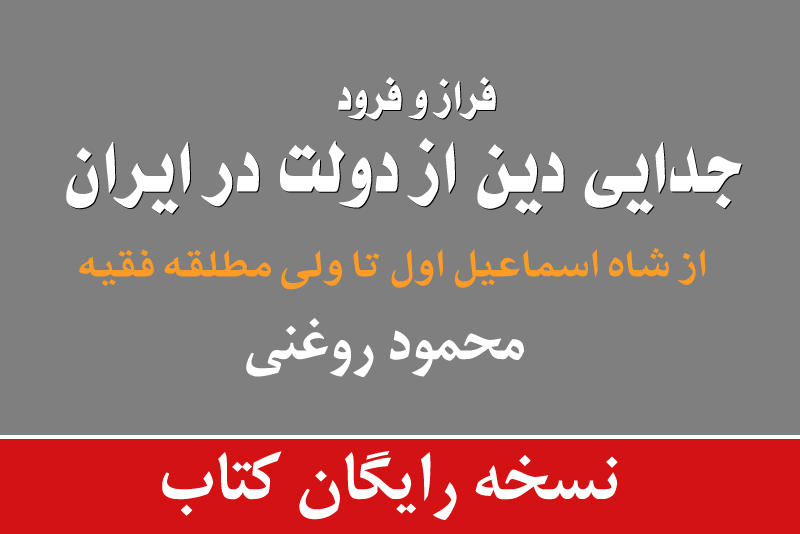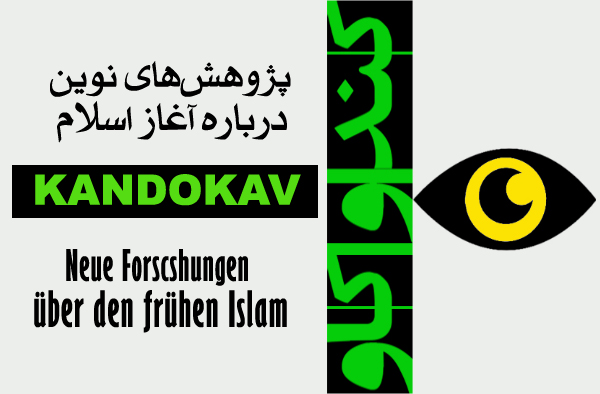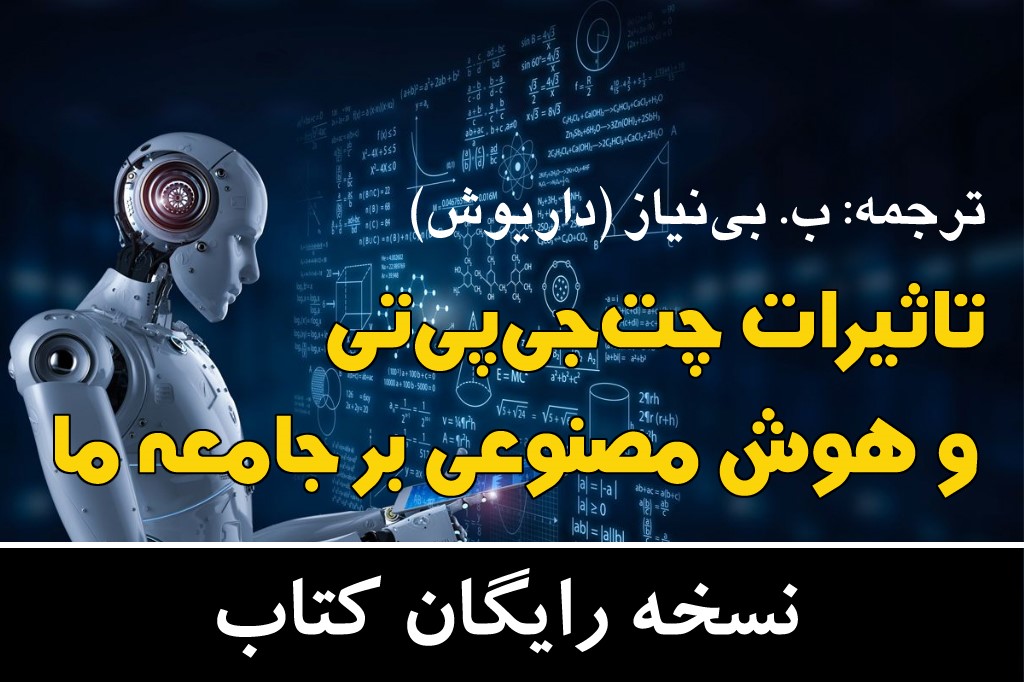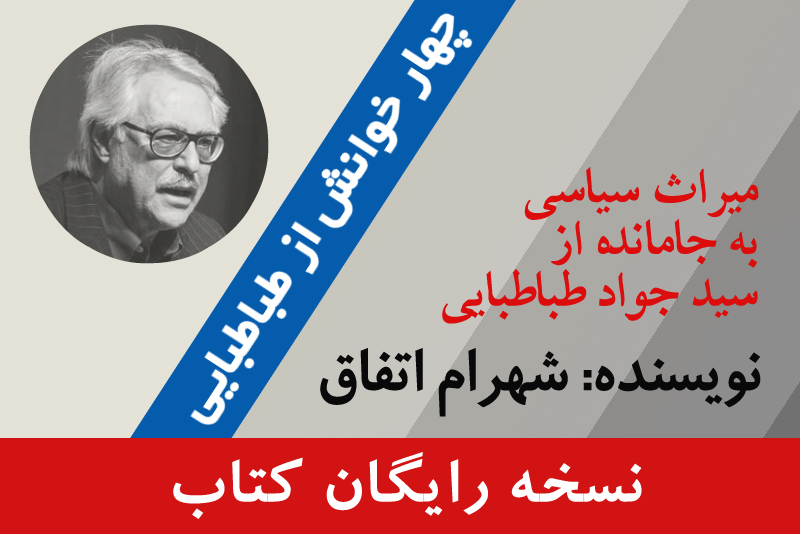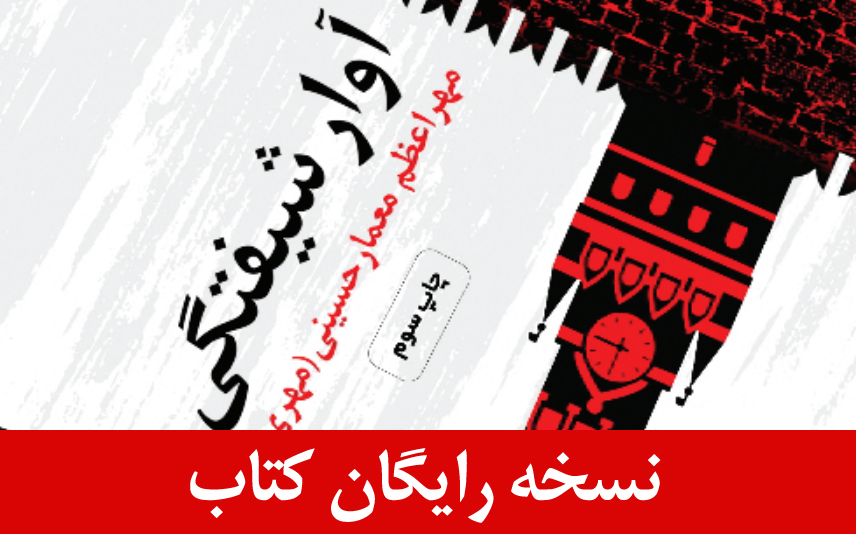| صفحه نخست | خبر و گزارش | سياست | انديشه | فرهنگ و ادبيات | زندگی | محیط زیست | RSS |
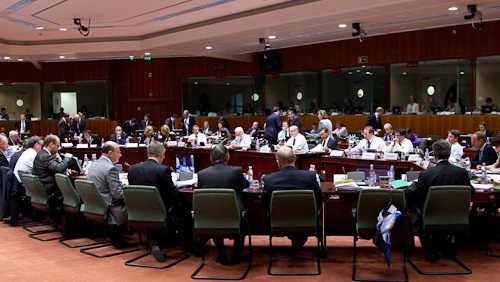
پیام مشترک در مورد تحریمهای اتحادیه اروپا علیه برنامه هستهای ایران
ایران سالهاست که به برنامه هستهای خود ادامه میدهد که شامل تلاش شدید برای غنی سازی اورانیم بوده و چندین قطع نامه شورای امنیت سازمان ملل و قطع نامههای شورای حکام آژانس بین المللی انرژی هستهای (IAEA) را نقض میکند.
تحریمها در واکنش به نقض تعهدات بین المللی ایران وضع شدهاند. هدف این تحریمها برنامه هستهای ایران بوده و متوجه مردم ایران نمیشود. این تحریمها شامل استثناهای مربوطه و مفاد خاصی میباشند تا از هرگونه تأثیرات ناخواسته بر مردم ایران کاشته شود.
این تحریمها متوجه رهبران ایران میباشند تا مسئولانه عمل کنند و بدینگونه تحریمها خاتمه یابند.
- جامعه بین المللی نگرانیهای جدی و دیرپایی در مورد ماهیت برنامه هستهای ایران دارد. ایران سالهاست که به برنامه هستهای خود ادامه میدهد که شامل تلاش شدید برای غنی سازی اورانیم بوده و چندین قطع نامه شورای امنیت سازمان ملل و قطع نامههای شورای حکام آژانس بین المللی انرژی هستهای را نقض میکند.
- ایران از همکاری کامل با آژانس بین المللی انرژی هستهای قصور کرده و در پاسخگویی به سؤالات این آژانس در رابطه با جنبه نظامی برنامه هستهای خود امتناع میکند. گزارشات آژانس بین المللی انرژی هستهای نشانگر پیشینه ایران در عدم پایبندی به مسئولیتهای بین المللی خویش میباشد. این موارد، نگرانیهای اصلی اتحادیه اروپا، و به طور فراگیرتر جامعه بین المللی را تشکیل میدهند.
- اتحادیه اروپا کاملاً متعهد شده که به دنبال یک راه حل دیپلماتیک برای مسئله هستهای ایران باشد تا اطمینان بین المللی برای ماهیت انحصاراً صلح آمیز برنامه هستهای ایران حاصل شود. اتحادیه اروپا برای حقوق مشروع ایران در استفاده صلح آمیز از انرژی هستهای و مطابق باNPT (عهدنامه عدم گسترش سلاحهای هسته ای) احترام قائل شده و قطع نامههای شورای امنیت سازمان ملل و شورای حکام آژانس بین المللی انرژی هستهای را به طور کامل مورد توجه قرار میدهد.
- اتحادیه اروپا حقوق ایران به عنوان یک کشور امضاَء کننده عهدنامه عدم گسترش سلاحهای هستهای برای استفادههای صلح آمیز از انرژی هستهای و براساس مفاد مربوطۀ عهدنامه عدم گسترش سلاحهای هستهای را مورد پرسش قرار نمیدهد. هنگامیکه اعتماد بین المللی در مورد ماهیت انحصاراً صلح آمیز برنامه هستهای ایران ترمیم شد، با این کشور به همان صورتی رفتار خواهد شد که با هر کشور امضاء کنندۀ فاقد سلاح هستهای رفتار میشود. این موضوع به طور روشن در پیشنهاد E3+3 به ایران در سال 2008 قید شده بود.
- نماینده عالیرتبه اتحادیه اروپا به همراه شش کشور فرانسه، آلمان، بریتانیا به اضافه چین، فدراسیون روسیه و ایالات متحده (E3/EU+3 خوانده میشوند) براساس دستور صریح شورای امنیت سازمان ملل و لذا جامعه بین المللی در حال مذاکره با ایران میباشد. شورای امنیت سازمان ملل در انعکاس به نگرانی عمیق جامعه بین المللی در مورد قصور ایران در پیروی از مسئولیتهای بین المللی الزام آور خود، شش قطع نامه را در مورد ایران تصویب کرده است تا برنامه هستهای خود را با این تعهدات سازگار کند. شورای امنیت سازمان ملل در تأکید بیشتر شدت نگرانی خود، تصمیم گرفته که تحریمهای بین المللی را نیز برعلیه ایران وضع نماید.
- متعاقب چند دوره مذاکره در سالهای اخیر که ایران آماده پذیرش راه حل مذاکره شده نبوده است، نماینده عالیرتبه اتحادیه اروپا به عنوان نماینده E3+3، به تلاشهای شدید دیپلماتیک پرداخته است تا گفتگوی جدی با ایران را احیا کرده و این موضوع منجر به سه دوره ملاقات بین E3+3 و ایران در سال 2012 شده است.
- E3+3 در طول این گفتگوها، یک بسته قابل قبول از عوامل ایجاد اطمینان را به ایران ارائه نموده است. این بسته به نکات کانونی جامعه بین المللی در رابطه با غنی سازی 20 درصدی توجه میکند ولی براساس اصول رابطه متقابل و رویکرد مرحله به مرحله، پاسخگوی نظرات ایران در مورد همکاری هستهای نیز میباشد. مزایای اضافی برای ایران نیز بخشی از این پیشنهاد را تشکیل میدهند.
- قبل از آن، تلاشهای مکرری برای وادار کردن ایران به مذاکرات جدی در مورد برنامه هستهای به عمل آمده بود. E3+3 پیشنهادات مستندی را قبلاً در سالهای 2006 و 2008 به ایران ارائه کرده بود.
- ایران تا کنون به طور مستدل به هیچیک از پیشنهادات ارائه شده پاسخ نداده است. ایران بالعکس به گسترش برنامه هستهای خود ادامه داده که به ویژه شامل افزایش ظرفیت غنی سازی خود و جمع آوری اورانیم غنی شده بیشتر میشود که در نقض مسئولیتهای بین المللی مربوطه است.
- با توجه به تخلفات مداوم ایران از تعهدات بین المللی خود و نگرانیهای عمیق اتحادیه اروپا در مورد ماهیت برنامه هستهای ایران و نقض مکرر تعهداتش، اتحادیه اروپا تحریمهای مستقلی را وضع نموده است که علاوه بر تحریمهایی میباشد که توسط قطع نامههای شورای امنیت سازمان ملل وضع شدهاند. این اقدامات محدود کننده به منظور یک هدف واضح وضع شده اند: تشویق دولت ایران به همکاری سازنده، مذاکره جدی و پرداختن به نگرانیهای جامعه بین المللی برای احیای اعتماد در ماهیت انحصاراً صلح آمیز برنامه هستهای خود.
- برای دستیابی به این مقصود، هدف تحریمها تأثیرگذاری بر برنامه هستهای ایران، شخصیتهای حقیقی و حقوقی که از برنامه هستهای حمایت میکنند و درآمدهای مصرف شده دولت ایران برای تأمین بودجه این برنامه میباشد. این تحریمها طوری هدفمندی شدهاند که حداکثر تأثیر را بر شخصیتهایی داشته باشد که اتحادیه اروپا مایل است بر رفتار آنها نفوذ کند.
- اقدامات محدود کننده اتحادیه اروپا براساس قوانین بین المللی و با احترام به حقوق بشر و آزادیهای اصولی اتخاذ شده و به اجرا گذاشته شدهاند.
- هدف تحریمها مردم ایران نمیباشد. برای تقلیل هرگونه تأثیرات ناخواسته بر مردم ایران، مجموعه تحریمهای اتحادیه اروپا شامل استثناهای مربوطه و مفاد خاصی میشود، به عنوان مثال برای معاملات مربوط به مواد غذایی، مراقبت درمانی، ابزار و آلات پزشکی یا منظورات کشاورزی و انسان دوستی.
- به طور ویژه، تحریمهای اتحادیه اروپا در رابطه با انتقال دارائی به ایران و بالعکس، شامل از طریق بانکهای ایرانی، شامل مفادی برای برطرف کردن موانعی میشود که درغیراینصورت به چنین معاملاتی اطلاق پذیر بود. بعلاوه، این بخشها از ممنوعیت تأمین حمایت مالی برای معامله با ایران (اعتبار صادرات) معاف میشوند.
- علاوه بر این، ممنوعیتهای عمومی در مورد معامله و ارسال وجوه به ایران تحت مجموعه تحریمهای اتحادیه اروپا وجود نداشته بلکه ممنوعیت بخشی وجود دارد. بنابراین معاملات مجاز میتوانند با کسب اجازه از مقامات مسئول کشورهای عضو و تحت روشهایی که به طور واضح و صریح تعریف شدهاند ادامه پیدا کنند. و با اینکه انتقال پول به ایران و بالعکس در واقع مشکل تر شده است چون برخی بانکهای عمده ایرانی برای مشارکت در برنامه هستهای ایران شناسایی شده اند، هنوز چند طریق برای انتقال وجوه وجود دارد که بسته نشده و تضمین میکنند که چنین معاملاتی بتوانند با ایران ادامه پیدا کنند.
- بنابراین تحریمهای اتحادیه اروپا شامل اقدامات حفاظتی میشوند که به روشنی تعریف شده و تا حد امکان تأثیرات ناخواسته را محدود کرده و شرایطی را برای ادامه این معاملات با حداقل موانع ممکن فراهم میکند. هنگامیکه کارگزاران با مشکلاتی در انجام معاملات روبرو میشوند یا در مورد تعریف مقررات مربوطه تردیدی وجود دارد، سازمان اتحادیه اروپا و مقامات صلاحیت دار کشورهای عضو میتوانند اطلاعات و توصیه لازم را ارائه نمایند.
- تحریمها برای ارزیابی توسط کارگزاران خصوصی اقتصادی و مخصوصاً بانکها و مؤسسات مالی در مقابل ناایمنی بازرگانی که وضعیت سیاسی ایران ارائه میکند مسئول نمیباشند با توجه به عدم ثباتی که بحران هستهای ایجاد نموده است.
- وخامت وضعیت اقتصادی ایران در وحله اول در نتیجه سیاستها و گزینههای اقتصادی رهبران ایران و انحراف منابع عظیم به برنامه هستهای میباشد.
- به طور روشن تر، هرگونه کمبود در داروهای موجود یا سایر اقلام اساسی در داخل ایران اساساً به واسطه اختصاص ناکافی منابع اقتصادی موجود توسط دولت ایران میباشد. اولویت داده شده به برخی معاملات به جای معاملاتی که مربوط به نیازهای اساسی و فوری مردم ایران میشود انحصاراً متوجه مقامات ایرانی میشود. لذا اتهامات مطرح شده توسط رهبران ایران برعلیه تحریمهای اتحادیه اروپا در این مورد عموماً بی اساس میباشند. بنابراین اتحادیه اروپا و کشورهای عضو آن آمادگی دارند تا اطلاعات و توصیههای لازم را برای غلبه بر موانع پیشبینی نشده برای معاملات اجازه داده شده ارائه کنند، به ویژه برای داروها و سایر کالاهای اساسی که هدف مجموعه تحریمها نبودهاند.
- رهبران ایران یک گزینه روشن دارند: همکاری و اقدام برای برطرف کردن دیپلماتیک این مسئله، یا روبرو شدن با فشار افزایش یافته از سوی جامعه بین المللی. تحریمها صرفاً ابزاری برای ایجاد فضای همکاری میباشند. بنابراین برای متقاعد کردن رهبران ایران بوده تا به فرایند مذاکرات جدی به منظور احیای اعتماد در ماهیت منحصراً صلح آمیز برنامه اتمی پیوسته و توسط پیروی از همه مسئولیتهای بین المللی خود که شامل اجرای کامل قطع نامههای شورای امنیت سازمان ملل و آژانس بین المللی انرژی هستهای میشود، به طور مسئولانه رفتار کرده و به این تحریمها خاتمه دهند.
اصل متن به زبان انگلیسی:
Common messages regarding EU sanctions against the Iranian nuclear programme
Iran has been pursuing a nuclear programme for many years, including an intensive uranium enrichment effort, in violation of several resolutions of the United Nations Security Council and IAEA Board of Governors resolutions.
Sanctions are a response to Iran’s violations of its international obligations. They target the Iranian nuclear programme and are not aimed at the Iranian people. They include relevant exemptions and specific provisions in order to minimise any unintended effects on the Iranian population.
It is for the Iranian leadership to act responsibly and bring these sanctions to an end.
***
- The international community has serious and long standing concerns about the nature of Iran’s nuclear programme. Iran has been pursuing a nuclear programme for many years, including an intensive uranium enrichment effort, in violation of several resolutions of the United Nations Security Council and IAEA Board of Governors resolutions.
- Iran is failing to cooperate fully with the IAEA and refuses to answer the Agency’s questions about the possible military dimension of its nuclear programme. IAEA reports demonstrate the Iranian record of non-compliance with its international obligations. These are the core concerns of the EU and, more broadly, of the international community.
- The EU remains fully committed to seek a diplomatic solution to the Iranian nuclear issue in order to build international confidence in the exclusively peaceful nature of the Iranian nuclear programme. It respects Iran’s legitimate rights to the peaceful use of nuclear energy in conformity with the NPT (the Treaty on the Non-Proliferation of Nuclear Weapons) and fully takes into account UN Security Council and IAEA Board of Governors’ Resolutions.
- The EU does not question the right of Iran as a State Party to the NPT to the peaceful uses of nuclear energy, in accordance with the relevant provisions of the NPT. Iran’s nuclear programme will be treated in the same manner as that of any Non-nuclear Weapon State Party to the NPT once international confidence in its exclusively peaceful nature is restored. This was clearly stated in the E3+3’s proposal to Iran in 2008.
- The EU High Representative, together with the six countries of France, Germany, the United Kingdom as well as China, the Russian Federation and the United States (called the E3/EU+3), is negotiating with Iran based on a clear mandate of the UN Security Council and thus the international community. The UN Security Council, reflecting the deep concern of the international community over Iran’s failure to comply with binding international obligations, has adopted six resolutions calling upon Iran to bring its nuclear programme in line with these obligations. To further underline the gravity of its concern, the UN Security Council has also decided upon international sanctions against Iran.
- After a number of negotiations in recent years in which Iran has not been prepared to agree to a negotiated solution, the EU High Representative, acting on behalf of the E3+3, has been engaged in intensive diplomatic efforts to revive a serious dialogue with Iran resulting in three rounds of meetings between the E3+3 and Iran in 2012.
- During these talks, the E3+3 have presented a credible package of confidence-building elements to Iran. The package focuses on the international community’s key concerns regarding 20% enrichment, but is also responsive to Iranian ideas on nuclear co-operation, based on the principles of reciprocity and a step-by-step approach. Additional benefits for Iran were also part of the offer.
- This followed repeated attempts to engage Iran in serious negotiations on the nuclear programme. The E3+3 made well-documented offers to Iran already in 2006 and 2008.
- Iran has so far not responded substantially to any of the offers presented to it. On the contrary, Iran has continued to expand its nuclear programme, especially by increasing its enrichment capacities and accumulating more enriched uranium, in breach of applicable international obligations.
- In light of Iran’s ongoing violations of its international commitments and the EU’s deep concerns regarding the nature of Iran’s nuclear programme and repeated breaches of its obligations, the EU has adopted autonomous sanctions, beyond the ones imposed on Iran by UNSC Resolutions. These restrictive measures have been adopted with one clear goal: to urge the Iranian government to engage constructively, negotiate seriously and address the concerns of the international community in order to restore confidence in the exclusively peaceful nature of its nuclear programme.
- To achieve this goal, the sanctions are aimed at affecting Iran’s nuclear programme, those persons and entities supporting the programme and revenues of the Iranian government used to fund the programme. They are targeted in a way to achieve the maximum impact on those whose behaviour the EU wants to influence.
- EU restrictive measures are adopted and implemented in accordance with international law and in respect of human rights and fundamental freedoms.
- The sanctions are not aimed at the Iranian people. In order to minimise any unintended effects on the Iranian population, the EU sanctions regime includes relevant exemptions and specific provisions, for example for transactions regarding foodstuffs, healthcare, medical equipment or for agricultural and humanitarian purposes.
- In particular, the EU sanctions concerning the transfer of funds to and from Iran, including through Iranian banks, include provisions that remove obstacles that would otherwise be applicable to such transactions. In addition, these sectors are exempted from the prohibition on the provision of public financial support for trade with Iran (export credit).
- Furthermore, there are no general prohibitions on trade with and remittances to Iran under the EU’s sanctions regime but targeted sectoral bans. Allowed transactions may therefore proceed with the authorisation of Member States’ authorities under clearly defined and straightforward procedures. And while transfer of money to and from Iran has indeed become more difficult as certain major Iranian banks have been designated for their involvement in the Iranian nuclear programme, there are still a number of channels for financial transfers which remain open and which ensure that such transactions with Iran can continue.
- The EU sanctions include therefore clearly defined safeguards to limit as much as possible unintended effects and to provide the conditions for these transactions to continue with as few obstacles as possible. Where operators are confronted with difficulties to carry out transactions or are in doubt about the interpretation of the relevant regulations, the EU Institutions and the competent authorities of Member States can provide information and advice.
- Sanctions are not accountable for the assessment by private economic operators, in particular banks and financial institutions, of the business risk represented by Iran’s political situation given the uncertainties created by the nuclear crisis.
- The deterioration of the Iranian economy is primarily the consequence of the economic policies and choices of the Iranian leadership and the diversion of enormous resources into the nuclear programme.
- More specifically, any shortage of available medicines or other essential goods inside Iran is mainly due to the inadequate allocation of existing economic resources by the Iranian government. The priority given to some transactions instead of the ones related to basic and urgent needs of the Iranian population is the sole responsibility of the Iranian authorities. Allegations by the Iranian leadership against the EU sanctions in this respect are thus largely unfounded. The EU and its Member States are furthermore prepared to provide information and advice to overcome any unforeseen obstacles to allowed transactions, in particular for medicines and all other essential commodities which are not the target of the sanctions regime.
- The Iranian leadership has a clear choice: cooperate and take steps to resolve this issue diplomatically, or face increasing pressure from the international community. Sanctions are not an end in themselves. It is therefore for the Iranian leadership to act responsibly and bring these sanctions to an end by engaging in a serious negotiation process aimed at restoring the confidence in the exclusively peaceful nature of its nuclear programme and by complying with all its international obligations, including full implementation of UNSC and IAEA board of Governors Resolutions.
|
| |||||||||||||
|
ايران امروز
(نشريه خبری سياسی الکترونیک)
«ايران امروز» از انتشار مقالاتی كه به ديگر سايتها و نشريات نيز ارسال میشوند معذور است. استفاده از مطالب «ايران امروز» تنها با ذكر منبع و نام نويسنده يا مترجم مجاز است.
Iran Emrooz©1998-2025 | editor@iran-emrooz.net
|
